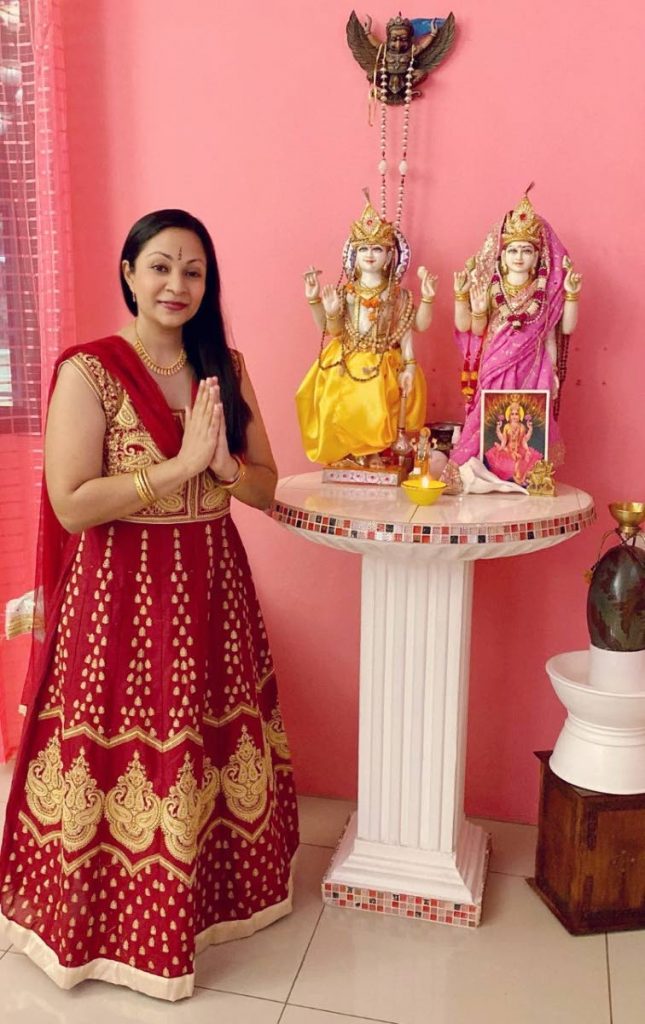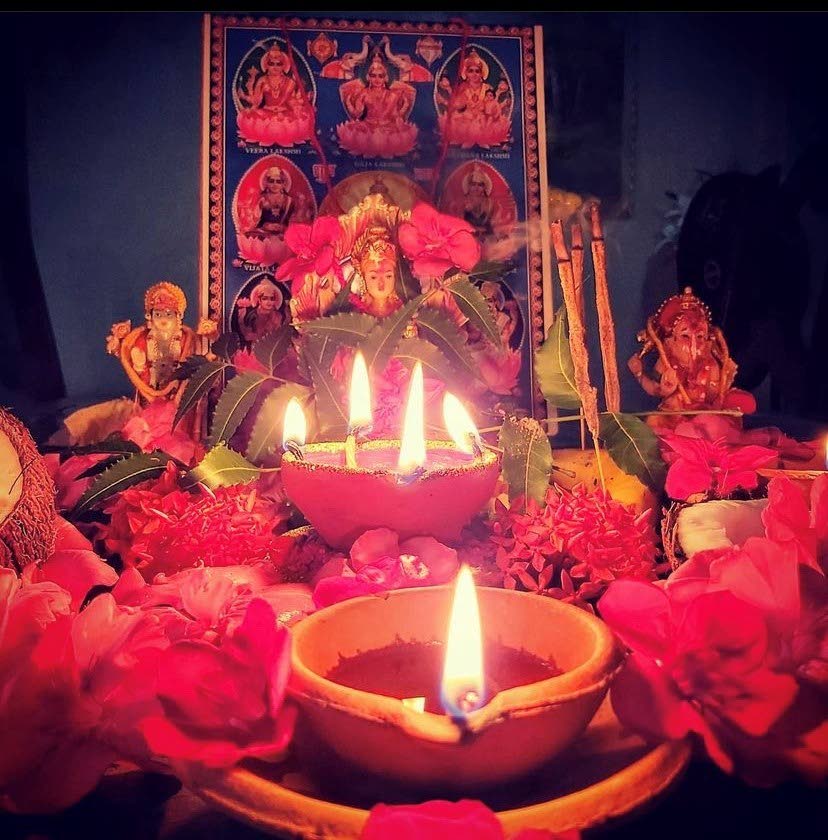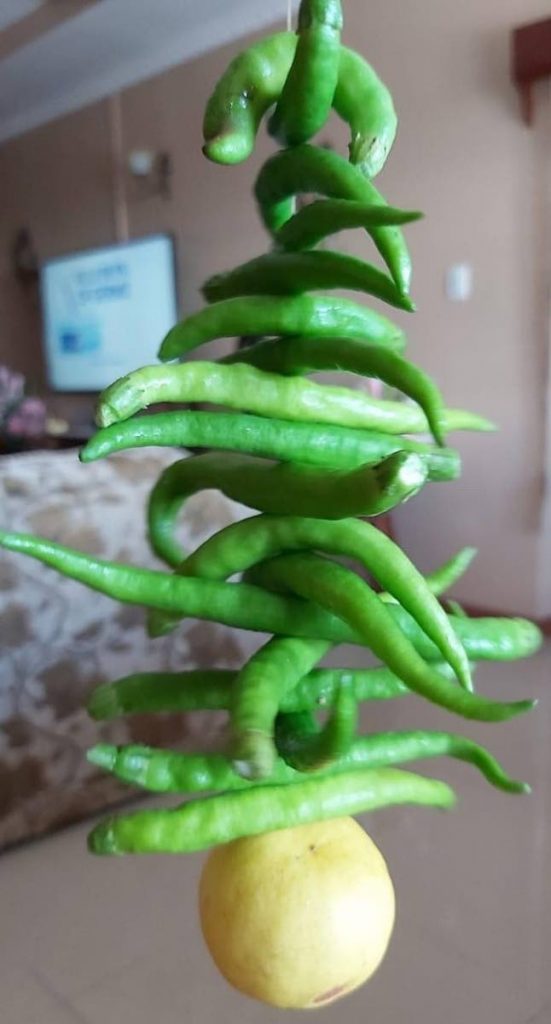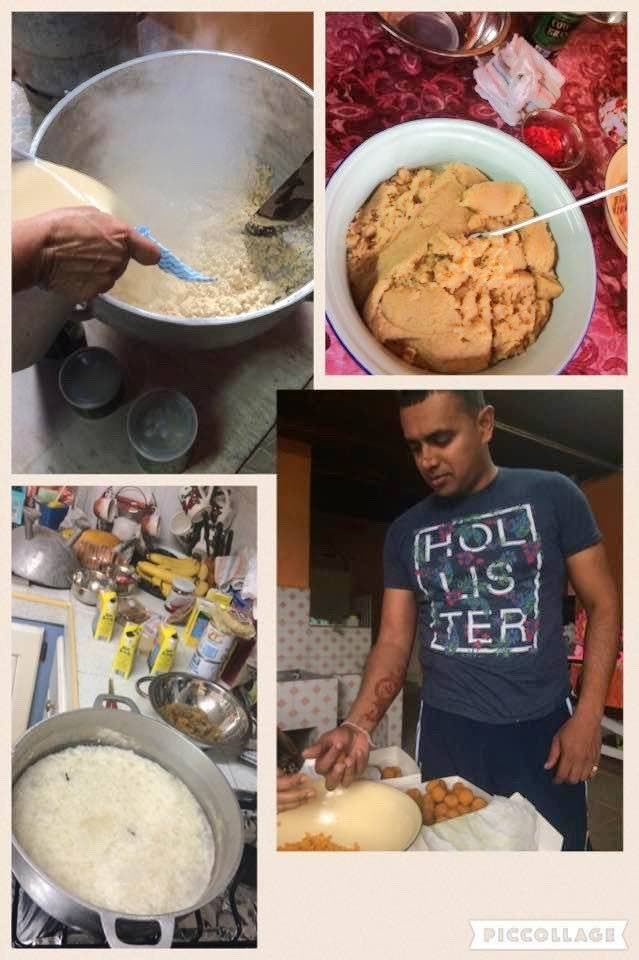Letting goodness shine for Divali

ANGALI HOSEIN
Sitaram and Shubh Divali to the Hindu community and to my beloved country, Trinidad and Tobago. Divali or Deepavali translates to a row of lights or festival of lights and bears a great significance in Hindu culture as it emphasises light over darkness as well as good over evil. Thus, the auspiciousness of this day brings me feelings of joy, happiness and love, which I try my best to share with those around me.
To Hindus, darkness represents ignorance, and light a metaphor for knowledge. Therefore, lighting a lamp symbolises the destruction, through knowledge, of all negative forces – wickedness, violence, lust, anger, envy, greed, fear, injustice, oppression and suffering. At my home on Divali day and sometimes the day after, we light deyas in every corner of our premises to make our surroundings filled with light and to make it cheerful and beautiful.
On a more personal level, Divali is a time where I turn inward and light the lamp of knowledge and truth in my heart and mind so that I can dispel the forces of darkness and ignorance within myself and allow my innate brilliance and goodness to shine forth. It is a time when I reflect on and evaluate my thoughts, words and actions over the past year so that I begin the process of transforming myself.
It is also a time where I focus on how I can be more loving, kind, respectful, and skillful towards myself and others, since all wealth, be it material or spiritual, should be shared with others who are less fortunate. Divali is also a time when I reflect on the various ways I can assist others and shine my light out into the world.
Spiritually, this festival is associated with Goddess Lakshmi, who is venerated amongst Hindus as the goddess of wealth and prosperity and is celebrated usually in October or November, in the month of Kartik. It is also celebrated in honour of the return of Lord Rama, his wife, Sita, and his brother Lakshmana to Ajodhya from exile of 14 years after defeating Ravana, an evil demon.

Being a devout Hindu and devotee of the Devi, the preparation for this day starts during the Ganesh Utsav period which is in August to September each year, throughout the Sharadiya Navratri to the end of the Divali festival where I maintain a vegetarian diet, sometimes without salt for a period, and where my actions and thoughts are filled with divinity. My family traditions are quite simple and I share this day with my parents, my brother and my extended family that live in close proximity.
Divali Traditions
The festival of Divali consists of five days, two days prior and two days after the Divali date itself, and the activities of each day is unique:
1. Dhantrayodashi or Dhanteras: This is the first day of the festivities. It is believed on this day Devi Lakshmi appeared whilst churning the milky ocean holding a pot of gold and sharing her wealth. On this day her consort, Lord Vishnu, is worshipped as Danvantari, the god of medicine. Many buy gold, silver and new utensils on this day, however, I would do charity and distribute hampers to those in society who requires assistance. Charity is something embedded deep within my soul from my late guru, Pundit Danish Maharaj, who also assisted many in his earthly existence. Thus, in this way I also bless others with what I have been blessed with.
2. Choti Divali/Naraka Chaturdasi: This is the second day of Divali and according to ancient Indian texts it is in honour of the slaying of a demon, Narakasur, by Lord Krishna and the freeing of over 10,000 maidens who were captured by the demon. On this day, my family light a deya in the evening after 6 pm, known as Yam Deep, seeking the grace of Lord Yamraj, where we ask the lord to keep us safe in all four directions.
3. Divali/Lakshmi puja/Maha Deepavali: This is the third day and the most awaited. The Devi Lakshmi is revered on this day with special puja and rituals. My family and I start this day off with prayer then proceed to make lunch which is traditionally curry. Throughout the day, bhajans are played in my home to keep the divinity in our minds while we continue with our preparations for Devi Maa puja in the evening. After lunch we meet up with other family members as we prepare the offerings, that is prasad and sweet rice. I also prepare a nimboo mirchi, which is a string with peppers and lime, which I tie outside my door to keep away negative energies and evil eyes.
At 5 pm, my mum and I sit for puja where we also worship Lord Ganesh, who removes any obstacles in our devotion, and Lord Vishnu, the consort of Lakshmi Devi. Eight deyas are lit for the eight forms of Devi Lakshmi and the items prepared are offered with special fire offerings (hawan). This usually takes about an hour and at 6 pm, my father and my brother will begin lighting the deyas to welcome the Devi to our home.

5.
Goverdhan Puja: On the fourth day of Divali we worship Lord Krishna. According to religious scriptures, there were terrible rains and thunderstorms which ravaged the village in which Lord Krishna lived. The helpless inhabitants of Vrindavan approached him for help and understanding the situation, he lifted the Goverdhan Hill on his little finger so the villagers could have sought refuge. On this day, we offer special fruit offerings to Lord Krishna and in the evening we visit a mandir where a small mountain is made to represent Mount Goverdhan and special prayers are offered.
Bhai Dooj: The final day of the Divali festival is referred to as Bhai Dooj where brothers visit their sisters to ensure their welfare and present gifts to them and in turn sisters offer prayers for the protection, happiness and well-being of their brothers. On this day I would offer special prayers for my entire family.

Divali is indeed one of the happiest holidays in the Hindu culture and holds a special place in my heart. I truly believe we should light that light of divinity in our mind, body and soul if we wish to dispel the darkness within and share this divinity with others.
Once again, to my Hindu brothers and sisters in TT and across the globe, may the blessings of Lakshmi Maa be with you and your loved ones today and always.
Shubh Deepavali
Angali Hosein is a HRSS officer – payroll & resource management operations at RBC Royal Bank (TT) Limited


Comments
"Letting goodness shine for Divali"